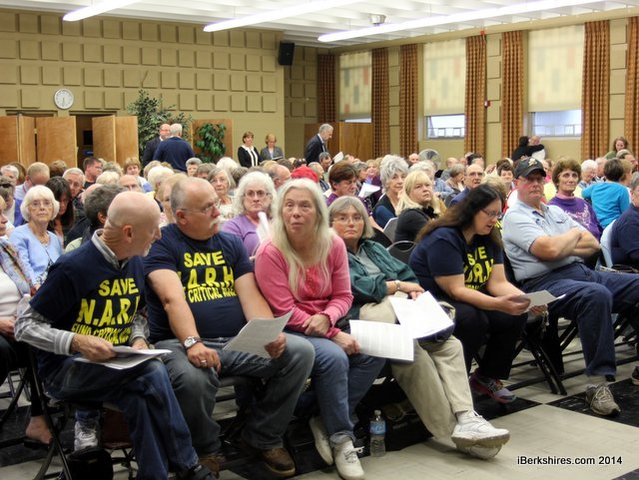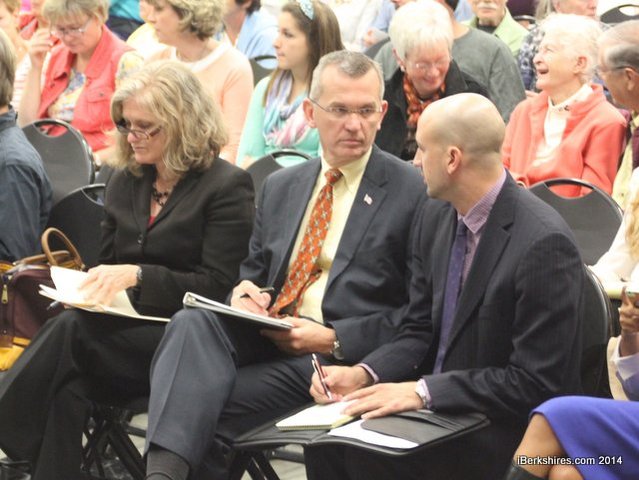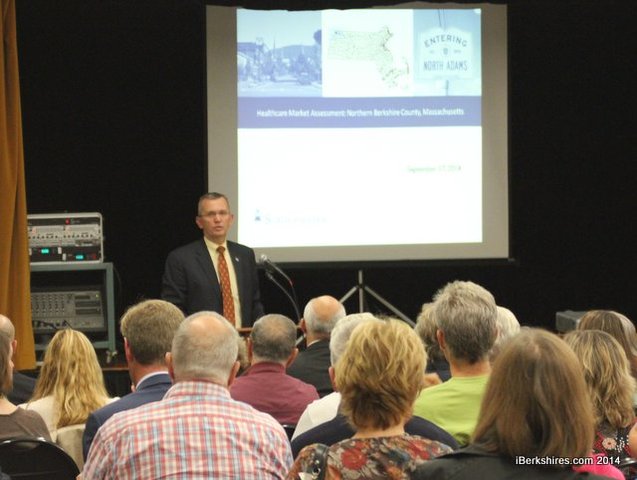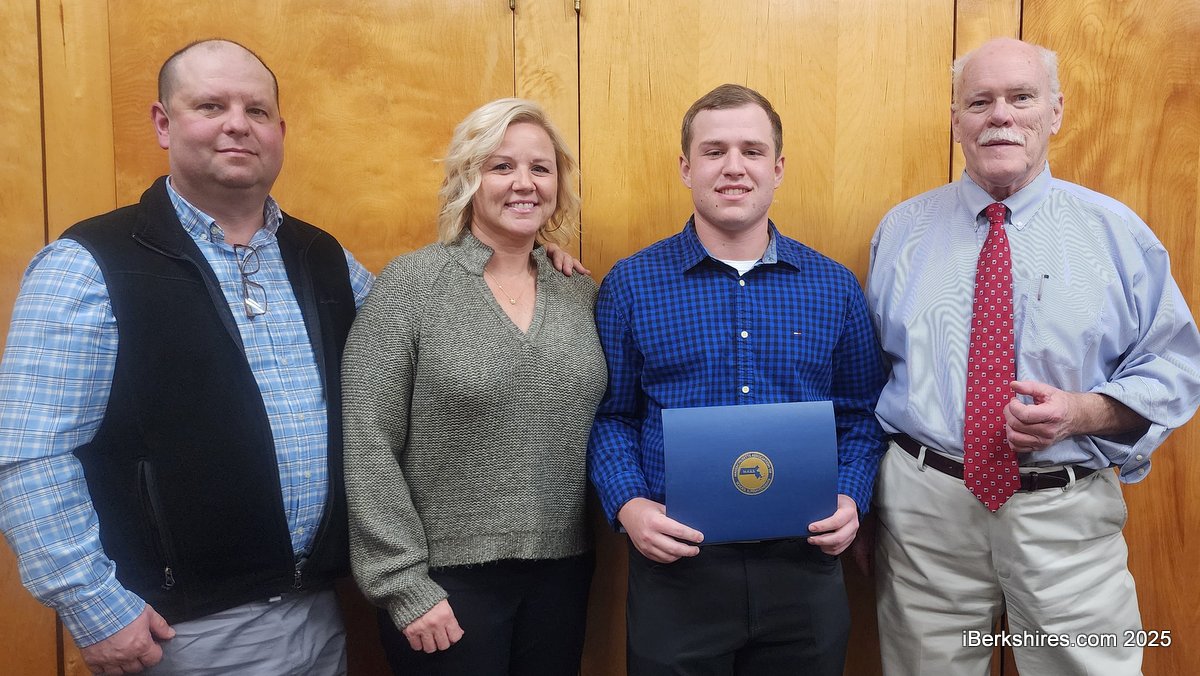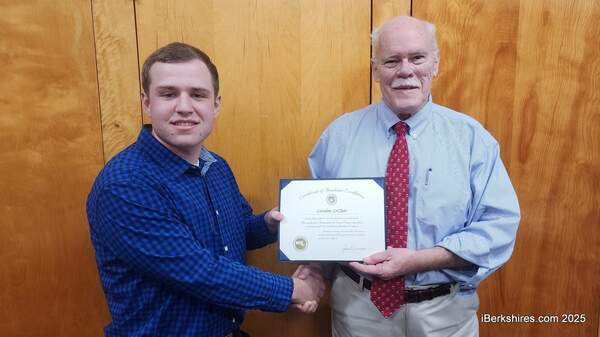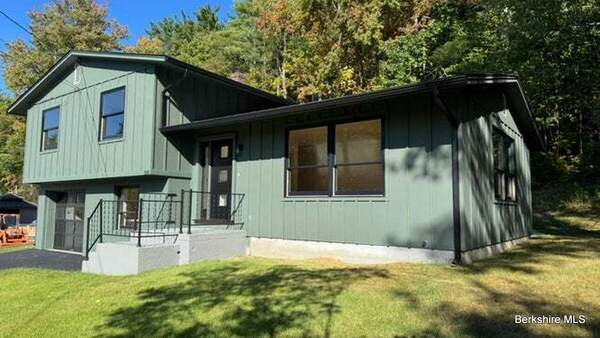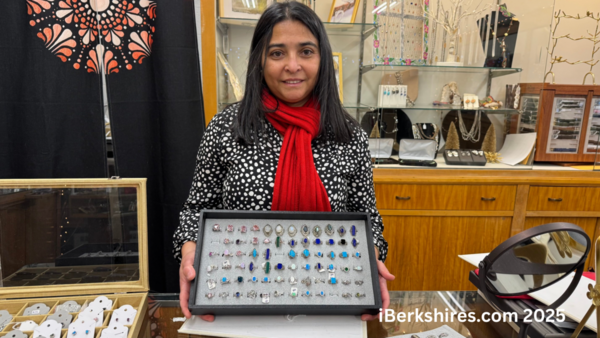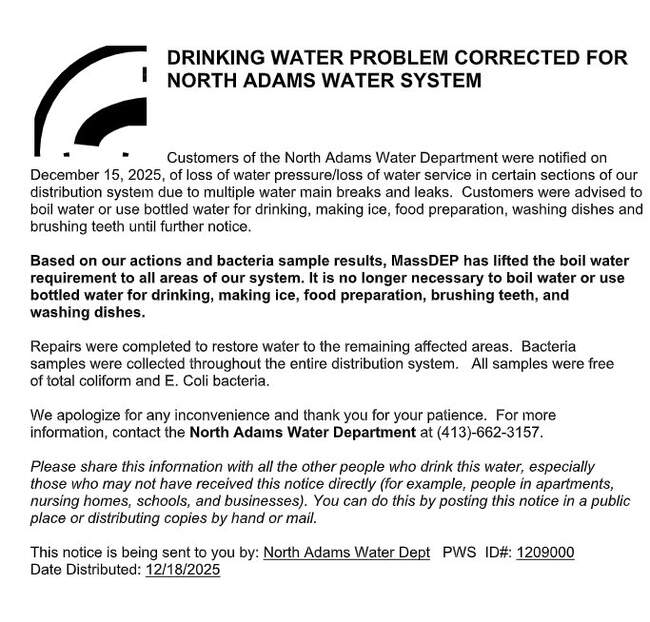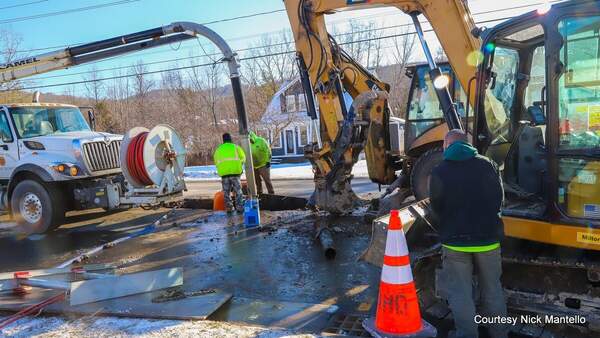North County Residents Question Health-Care Needs Report
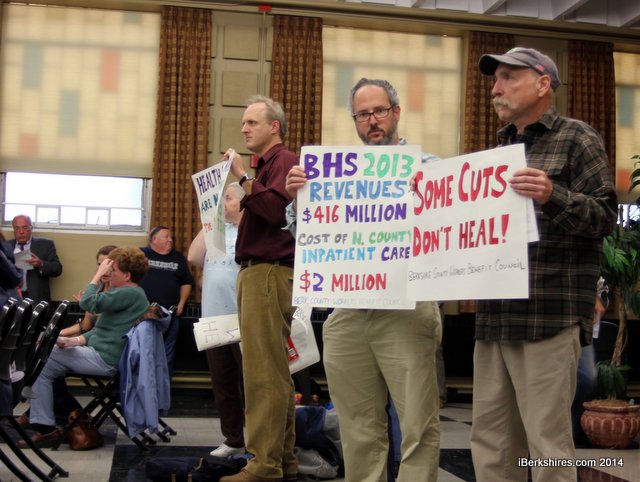 Residents advocated for the return of a full-service hospital despite a report that says it can only function with a special federal designation. Residents advocated for the return of a full-service hospital despite a report that says it can only function with a special federal designation. |
NORTH ADAMS, Mass. — A report detailing in hard numbers the health care needs of the community — one that does not include a full-service hospital — has been a hard pill for residents to swallow.
More than 150 people attended a review on Tuesday night of a community health needs study commissioned by the state, a report expected to shape the future delivery of health care in North County.
While there was plenty of thanks for Berkshire Medical Center's prompt reopening of what had been North Adams Regional Hospital's emergency room, many are concerned about the report's pessimistic outlook on the hospital's revival.
"Your report may make perfect sense. We don't want perfect sense, we want a hospital," said artist and local businessman Eric Rudd. "If this is about money than you fail to determine the long-term consequences."
To loud applause, Rudd called for "creative leadership" in determining the next steps on providing essential health care services.
The report by Stroudwater Associates, commissioned by the state, is recommending a focus on bulking up primary-care delivery and investing in wellness initiatives.
"We're going to do everything we can to make the report a reality," said Secretary of Health and Human Services John Polanowicz.
Brian Haapala of Stroudwater went through a page-by-page review of the 107-page report's summary of recommendations and findings.
The study looked at current needs and health-care trends using data and community input.
"Then we looked at how things are expected to be changed in the future," he said. "It is as complicated in your community as it is at the national level."
The charge was not to look at the factors leading to the abrupt closure of the hospital in March, but use its patient data as part of a broader look at regional trends.
It also looked at key issues in the health-care industry, said Haapala.
"We are on an unsustainable cost escalation," he said. "We can't continue to spend more and more."
Health care spending overall is expected to double in the coming years; at the same time, individuals are paying more and more out-of-pocket as deductibles rise.
The question was how to weed out the inappropriate and focus on what the community overwhelming said it wanted: health, wellness and prevention.
Many of the comments received from the community had to do with environmental and behavioral factors: obesity, drug abuse, smoking. More than a third said they had difficulty getting to a doctor, either because of transportation or long waits for appointments.
The report recommended that the region develop better access to preventive and primary care.
"At least an additional six full-time physicians are needed," said Haapala, who added Berkshire Health Systems is working on a grant targeted to areas with a shortage of primary-care physicians.
Health center groups in Southern Berkshire have also applied for grants to expand into North County.
What the study also found was that half the people in the area expected to use NARH had actually been going elsewhere for various reasons, including a lack of specialties.
What they were using was the emergency department on an increasing basis, often because of lack of access to doctors. Three out of four patients "didn't even classify being emergent," he said. That verified the need for emergency care that Berkshire Medical Center was willing to provide through its emergency satellite facility.
At the same time, the hospital was admitting more patients per population than the national and state average. But the trend is fewer admissions and more outpatient services.
The study calculated a need for 18 to 21 beds, but only if federal Critical Care Access designation could be achieved.
Haapala said there was at least a $2 million gap in direct service costs in duplicating existing services provided by Berkshire Medical Center in Pittsfield.
"You have a gap that would have to be subsidized [by CCA] to offer that service," he said. "Absent that, those dollars can be better served somewhere else."
It was a $2 million gap that some in the audience grabbed at in arguing for a full-service hospital could be reinstated. Especially, as one man described, attaining CCA designation after already being rejected was "a long shot."
Resident John Lipa argued that NARH had made $60 million in patient-related services according to past tax returns.
"Why can't a business making $60 million make it?" he asked. "We need to find some way to provide inpatient services in an effective way."
Massachusetts Museum of Contemporary Art just received $25 million and Hoosic River Revival, $8.8 million in state funds, said Rudd. "We can't find $2 million to keep our hospital going?"
Thatcher Kent of Western Massachusetts Labor Action asked why Berkshire Health Systems couldn't subsidize the $2 million, pointing to Fairview Hospital's touting its care for second homeowners in South County.
"We have communities really struggling economically here," he said. "Is that the difference we see in care in the two communities?"
Haapala and Polanowicz said the calculation was more complicated and they would find a better way to explain it.
Haapala will repeat his talk on Wednesday morning at 9:30, also at the Church Street Center.
The community will have to decide what to do as the next step, a decision that will have to fully involve Berkshire Health Systems.
"You're going to have to work together," said Polanowicz. "This is going to be done with you all working together ... a big part of this is going to be trusting that Berkshire Health Systems will do the right thing for the community."
Tags: BMC, health & wellness, health care report, NARH,

